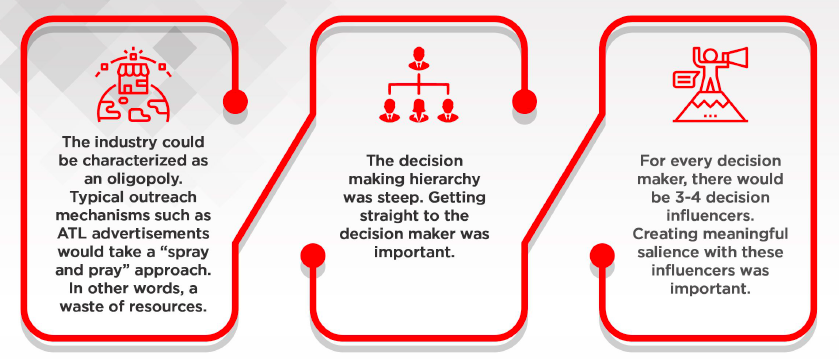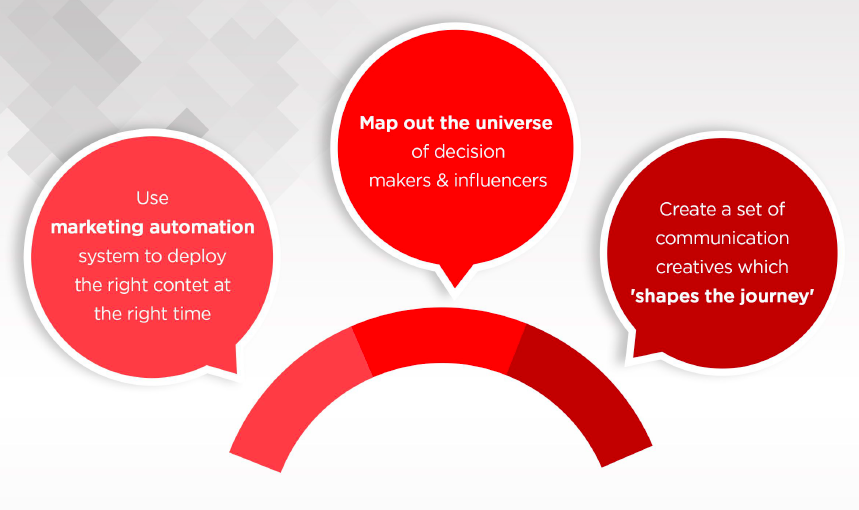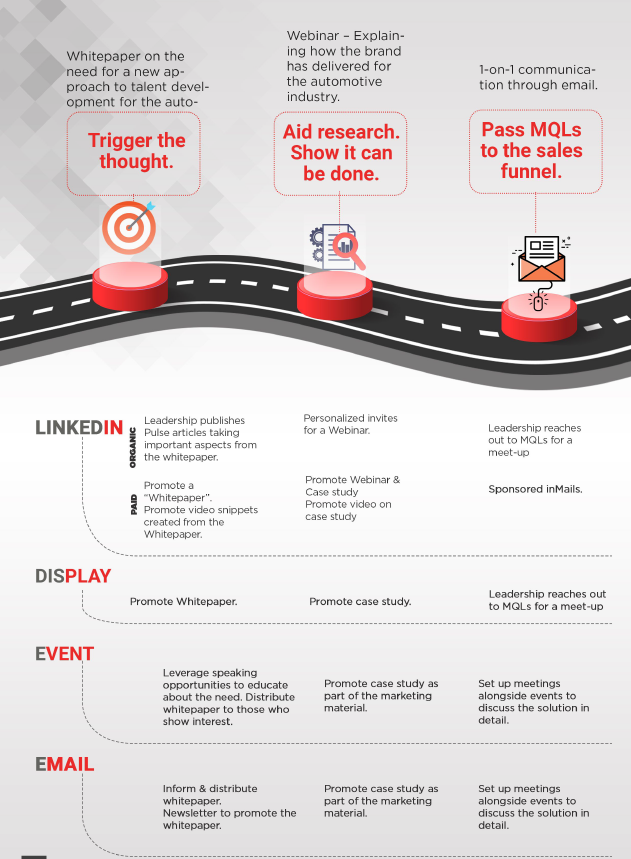Account Based Marketing to generate quality meetings
Executive Summary
A leading talent development brand wanted to drive sales in the automotive vertical. The brand had worked with the #1 automotive brand in India to create a highly-skilled salesforce for channel sales. The challenge was to take this unique experience to all large automotive OEMs in the country.
Account Based Marketing (ABM) was recommended and deployed. Personalized marketing strategies were developed for each account and deployed using automation. Marketing qualified leads within these accounts were then approached for a one-on-one meeting by the National Head of Sales of the brand. Off the targeted accounts over 50% agreed for a meeting to understand the offering.
The Brand
Established in 1981, the brand is a multinational company that offers multi-disciplinary learning management and training delivery solutions to corporations, institutions, and individuals in over 40 countries. It provides a comprehensive suite of managed training outsourcing services including Curriculum Design and Content Development, Learning Administration, Learning Delivery, Strategic Sourcing, and Learning Technology. Over the years, it has carved a niche in the digital learning space helping corporations and institutions with their suite of managed training outsourcing services.
The Context & Challenge
The brand had created niche solutions for functional and soft-skill training for the automotive industry, working with the market leader in the segment. The brand wanted to evolve from a generic talent development solutions provider to one which provides specialized solutions by industry.
The challenge stemmed from several factors:

An approach that could target this niche but a very high-value target audience was needed. Further, the approach needed to appeal to the audience, which comprised perhaps the most accomplished people in the industry.
Account Based Marketing Approach
An account based marketing (ABM) approach was best suited in light of the challenges highlighted in the preceding section. The below schematic shows the different elements of the approach.

- Mapping out the universe
The universe was carefully mapped out. Decision-makers would be both business leaders and leaders from talent development. Decision influencers would typically be advisors and immediate subordinates of the decision-makers.
A database was curated. This database was annotated with business intelligence regarding the account and the lead. The business intelligence could be related to awards, recognitions, media mentions, common connections amongst others.
- Map out the journey to “shape” it
Customer segments were created by function and designation. Broad segments comprised “business” and “learning and development”.
Based on insights on digital media consumption a communication strategy for each possible touchpoint was created. The strategy was to shape their journey, gradually towards the eventual desired meeting
A representative schematic shows how the journey can be shaped. This is the audience journey, content, channel map.

- Marketing automation
Deploying marketing automation helped objectively define where each lead was in the journey. Lead scoring helped understand whether a lead was qualified (MQL). The entire distribution of content through different channels, the creation of audiences for advertising was done using automation.
Impact
- Over 50% of the targeted accounts ended up in meetings between decision-makers.
- Some representative accounts which converted into meetings included the Suzuki, BMW, Nissan, Mercedez Benz and Honda amongst others.
How Asia’s largest talent development company used ABM to directly create sales meetings more than 50% of the targeted accounts within the automotive industry.


